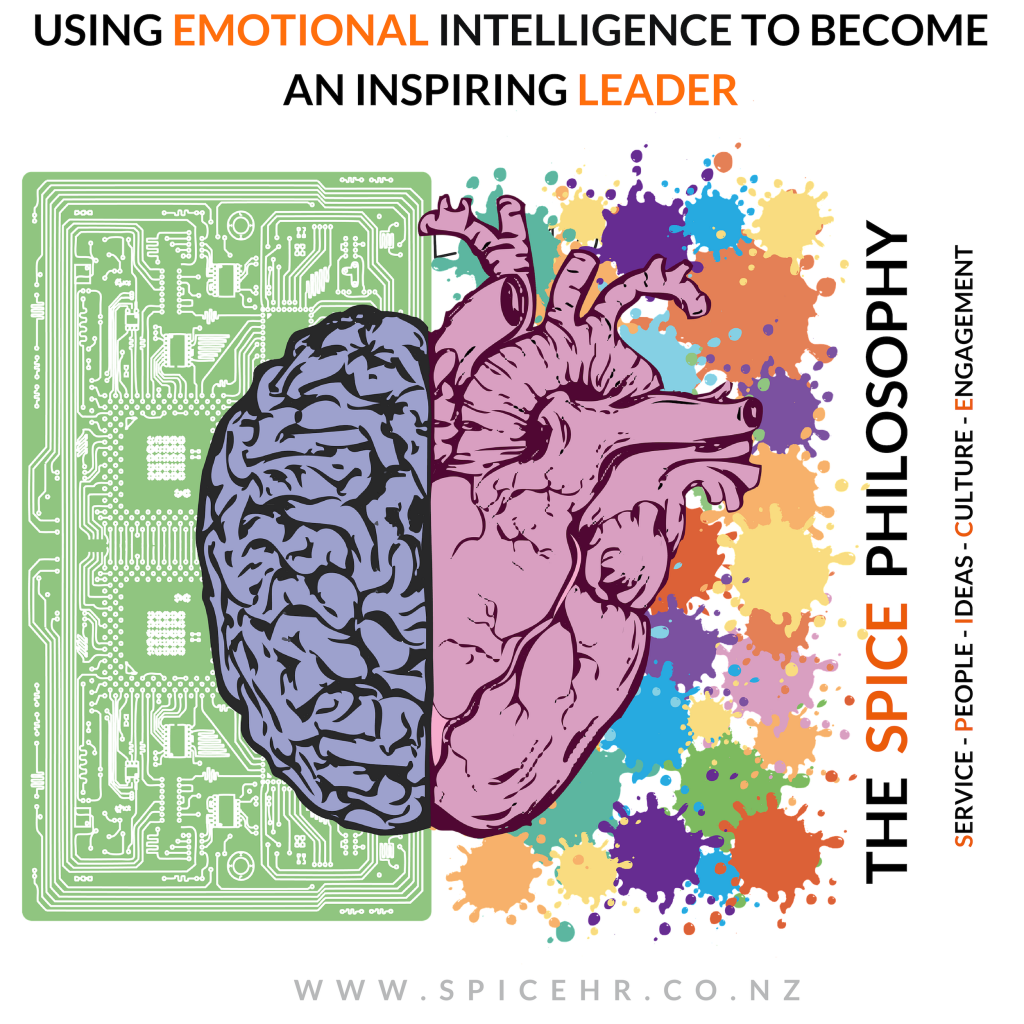
Today’s work culture is vastly different from that of only a few decades ago. The old-fashioned style of management is falling from grace, replaced with a more values-based system. This system favours leadership with a strong focus on emotional intelligence.
Gone are the days where a bullying “manager” inspired obedience through fear. Good businesses now understand that to be genuinely successful, leaders need to build trust, empathy, and respect.
While managers have people who work for them, leaders have people who willingly follow them. This may sound like a subtle difference, but it has a significant impact on morale, motivation, and productivity.
Let’s explore the difference and how you can make an impact with emotional intelligence at your workplace.
What is Emotional Intelligence?
To be able to use it well, you first need to know what it is! So, what is emotional intelligence?
In a nutshell, emotional intelligence is the maturity, insight and empathy required to effectively understand and manage your own emotions, as well as those of the people around you. Rather than flying off the handle in sticky situations, you can take a step back and avoid making emotionally charged decisions.
It is professionally thinking with your head, as opposed to being driven by your emotions. Good leaders have this quality and inspire their team to make good decisions also.
Why is Emotional Intelligence Important for a Leader?
Although technology has come a long way, most workers are not yet robots. Each individual requires a different approach. A good leader aims to inspire and motivate his or her team, know their strengths and weaknesses, and understands which approach works best to unlock each person’s full potential.
This is where emotional intelligence comes in. Identifying personality types, emotions, communication styles and getting buy-in can be achieved by using your skills of empathy and intuition.
However, it is not simply all about the feelings and emotions of others. Inspiring bosses lead by example. They are not afraid of tricky conversations or situations because they have the self-awareness and confidence to handle whatever is thrown at them.
The way you handle yourself will trickle down through your teams. Your management “flavour” dictates the overall flavour of the business. If you are spicy and hot-headed, your work environment will mimic this. Whereas if you are strong, yet calming – like a soothing cup of tea – the culture will eventually feed off this vibe and start to reflect it.
Management vs. Leadership
Now that you understand the concept of emotional intelligence, let’s look at how you can use it as a Leader in your workplace. There are very negative connotations around “management”. Managing and leading are two very different things. From your own experiences, you may be able to identify with some (or all) of the examples below:
- Managers may force people into following policies and getting things done. Leaders encourage people to believe in the journey.
- Managers often toe the line and follow regulations to the letter. Leaders can think outside the box and aren’t afraid to try a different tack for the good of the team and the business.
- Managers can choose to use the “carrot on a stick” technique to get results. Leaders inspire success by capturing people with their vision and helping them understand their role in the bigger picture.
- Managers often feel the need to “micro-manage” people and projects, constraining creativity. Leaders understand the need to take a step back and trust in their team. They work to people’s strengths.
- Managers may have an ego about needing to be the expert on everything, not allowing people to grow and shine. Good leaders know that passing the ball and letting other people’s experience and insights shine is crucial for the growth of not only the team, but the organisation.
It’s widely known throughout the business world that employees don’t quit companies, they quit managers and bosses! Take a look at your business and ask yourself: are you merely telling people what to do, or are you inspiring them to follow your lead?
Answering this question alone can be tricky. That is where the team here at Spice HR can help. Building a great workplace culture will encourage emotional intelligence and excellent team contribution. And that is exactly what we can help you do at your workplace. Get in touch with us today.
